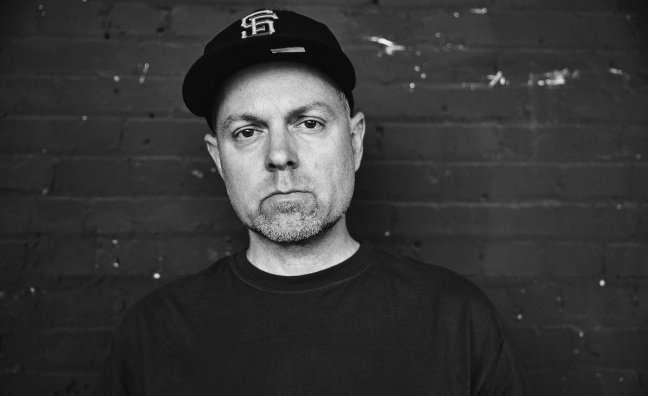DJ Shadow has returned with his eighth album, Action Adventure, an almost entirely instrumental record that presents an intimate portrait of the legendary crate digger. Here, he talks A&R, working with Nas and more...
INTERVIEW: Niall Doherty
Where did the process of making this new record begin?
“For a long time during Covid, I really didn’t want to listen to anything contemporary, I wanted to listen to music that made me feel good and salve all these open wounds that I and many other people had. I ended up falling in love with tapes from the mid-’80s because they brought me back to a time that I feel is very rarely celebrated in popular music. I found it really inspiring.”
After a run of guest-heavy records, this is a return to just you and your crate-digging sensibilities and sampling collages. Do you approach an album differently when there are no collaborations?
“Even if I’m friends with the artist and we’re thinking similarly, inevitably there are going to be moments where I’m like, ‘Well, I know he or she wouldn’t like it if I did that here,’ so it was just really refreshing to not have to have any of that in my head. Coming through the pandemic, as we all did, I also felt like, ‘Well, I really have nothing to lose by making a record that’s completely personal and completely me.’ I think we’ve all seen what there is to lose and in the grand scheme of things, making a record is a blessing and a luxury.”
You’re releasing Action Adventure on Nas’ Mass Appeal label – what’s he like as a boss?
“He’s encouraging. He’s very generous in terms of his time and if I’m ever in New York when he’s there, it’s like, ‘Hey, let’s go get dinner.’ He’s kind of awe-inspiring and extremely productive. He’s always busy, I can’t keep up. I think we’re a similar age and I can’t do what he does, no way. He’s very bright, very understanding and innately aware of what everyone’s role is and what’s happening and what trends are taking place. Musically and industry-wise, he’s up on it and very engaged.”
Since you came into the music industry, what’s one thing that’s worse and one thing that’s better?
“Okay, I’m going to make it a little more difficult by saying the same answer for both, which is the decline of the A&R person. There was a lot to be said for the classic A&R role. It allowed for industry-wide cohesion and natural progression, you were able to have a genre, like heavy metal, that could have a natural arc and then all the A&R people flocked to a particular town, scene or club and suddenly the public has this whole new plaything musically, where it’s like, ‘Oh, wow, tell us the story of this.’ Some of it was natural and some of it was artificial in the sense of the way things get blown up, but you had that arc which was then transplanted by grunge and then Britpop. I think a lot of that was invented and perpetuated and sustained by the role of the A&R person, which I think was a good thing. It gave things a lifespan.”
So what is the downside of it?
“It was also negative in the sense that it prohibited a lot of free expression, choice and competing ideas to have their chance. Now there are really no gatekeepers, unless you have a really popular playlist or something, that’s about the only gatekeeping I can think of in 2023. You have the ability to just dump it all in one giant pot, which I think has its challenges as well. The role of the A&R person benefited the industry and I think it constrained the industry. There are days when I miss it and there are days when I’m glad it’s gone.”
Photo Credit: Koury Angelo











